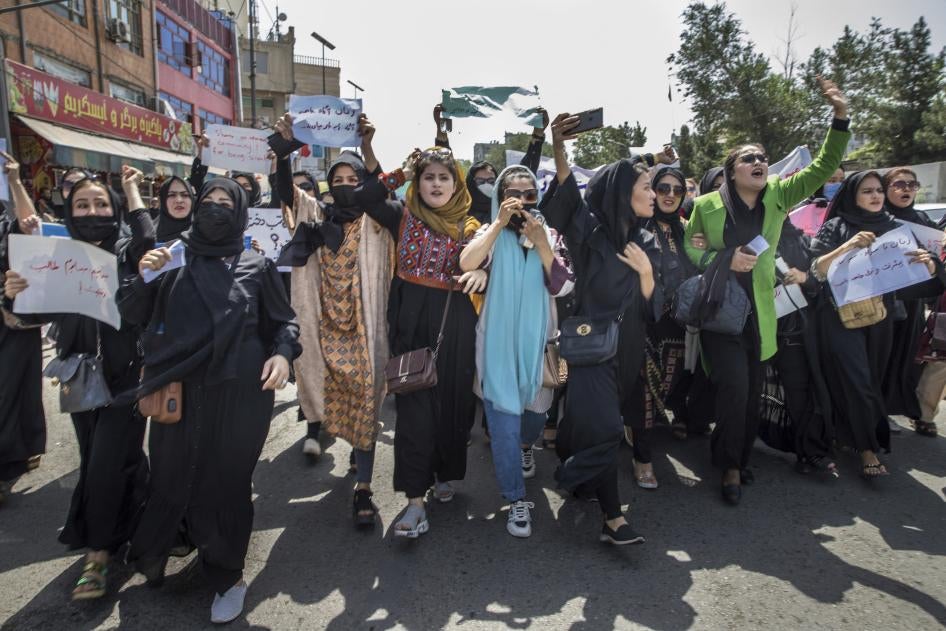This opinion piece was co-authored by Fereshta Abbasi, Afghanistan Researcher at Human Rights Watch, and Torunn Wimpelmann, Research Director at Chr. Michelsen Institute.
Earlier this year, Norway’s deputy foreign minister, Andreas Kravik, published a rather ambitious opinion piece in Al Jazeera in which he underlined the importance of avoiding double standards in foreign policy. ‘Real security,’ he wrote, ‘requires that we work to ensure that international law is respected,’ but it needs to be consistently applied independently of Western interest in the Middle East as well as in Ukraine. He identified international law as a central aspect of Norwegian foreign policy, ‘a position that should inspire all states.’
Norway’s government has been a leader in promoting international law in many instances, but indeed seems to have a double standard when it comes to the rights of Afghan women.
At the United Nations Human Rights Council in Geneva, Norway has led action to advance accountability for international crimes committed in Sudan and South Sudan, and to address crimes against humanity by Chinese authorities in Xinjiang against Uyghurs and Turkic Muslims, and has supported many other such efforts led by other countries, addressing crises around the world.
Norway has also taken a clear stand against serious crimes committed as part of the hostilities between Israel and Hamas, and called for Israel to respect orders by the International Court of Justice as part of South Africa’s case alleging violations of the Genocide Convention for Israeli conduct in Gaza.
When it comes to Afghanistan, however, where women have been subject to ever-increasing gender persecution, Norway appears to be taking a more cautious line. Here, the key word has been ‘dialogue’ rather than ‘accountability’. In January 2022, Oslo provided the first opportunity for the Taliban to meet with Western officials in Europe.
Since the Taliban seized power in August 2021, they have increasingly imposed gender-based oppression against Afghan women and girls. Women have been banned from many forms of employment except in primary education and health care. They are prohibited from formal education after grade 6, and from visiting parks, gyms or hair dressers. They are not allowed to travel or even use public transport without a close male relative. They have to cover their faces and can be arrested for immorality if they violate dress codes. The courts have carried out lashings – typically 39 lashes for those found guilty of ‘moral crimes,’ such as running away from home.
There has been a tendency in Norway to minimize these violations by claiming that Afghanistan is a traditional society where women have had few rights. This is problematic. Afghan society is diverse and has undergone significant change in recent decades. Research shows that rural women also want education and other rights for their daughters. In the cities in the years prior to the Taliban takeover, there have been significant changes to women’s mobility and autonomy within their families.
All those who have experienced serious abuses know that acknowledgment and support are essential for any effort to end the abuses and that Afghan women at home and abroad have mobilized so that the world recognizes the Taliban's policies toward women for what they are: crimes against humanity. Yet Norway apparently has joined the countries seeking “business as usual” relations with the Taliban.
In June, Norway and other Western governments complied with the Taliban's demands to meet them at an international conference without Afghan women present and without any discussions on women’s rights on the official agenda. Diplomats taking part claimed that they were able to talk to the Taliban about the situation for women. But raising concerns about women’s rights does not mean the Taliban leadership will change its policies. Soon after the conference was over, news emerged that the Taliban had issued a law banning women from talking while outside.
Now, however, it seems that some countries have had enough. Germany, Australia, the Netherlands, and Canada announced on September 25 that they triggered a process that could eventually lead to a case at the International Court of Justice for violations of the Convention on the Elimination of All Forms of Discrimination against Women. Norway should join them in this process.
The UN Human Rights Council once again failed to establish a comprehensive accountability mechanism for Afghanistan that would document and support accountability for grave crimes committed by all actors in Afghanistan, past and present, with a particular focus on crimes against women and girls. If the Norwegian government is serious in its opposition to foreign policy double standards, it should actively support this effort, as it has done in so many other grave situations.
The international legal order must of course also apply to women, regardless of which society they live in. Norway should therefore be as supportive of international law in the case of Afghanistan as in the Middle East, Ukraine, and elsewhere.









